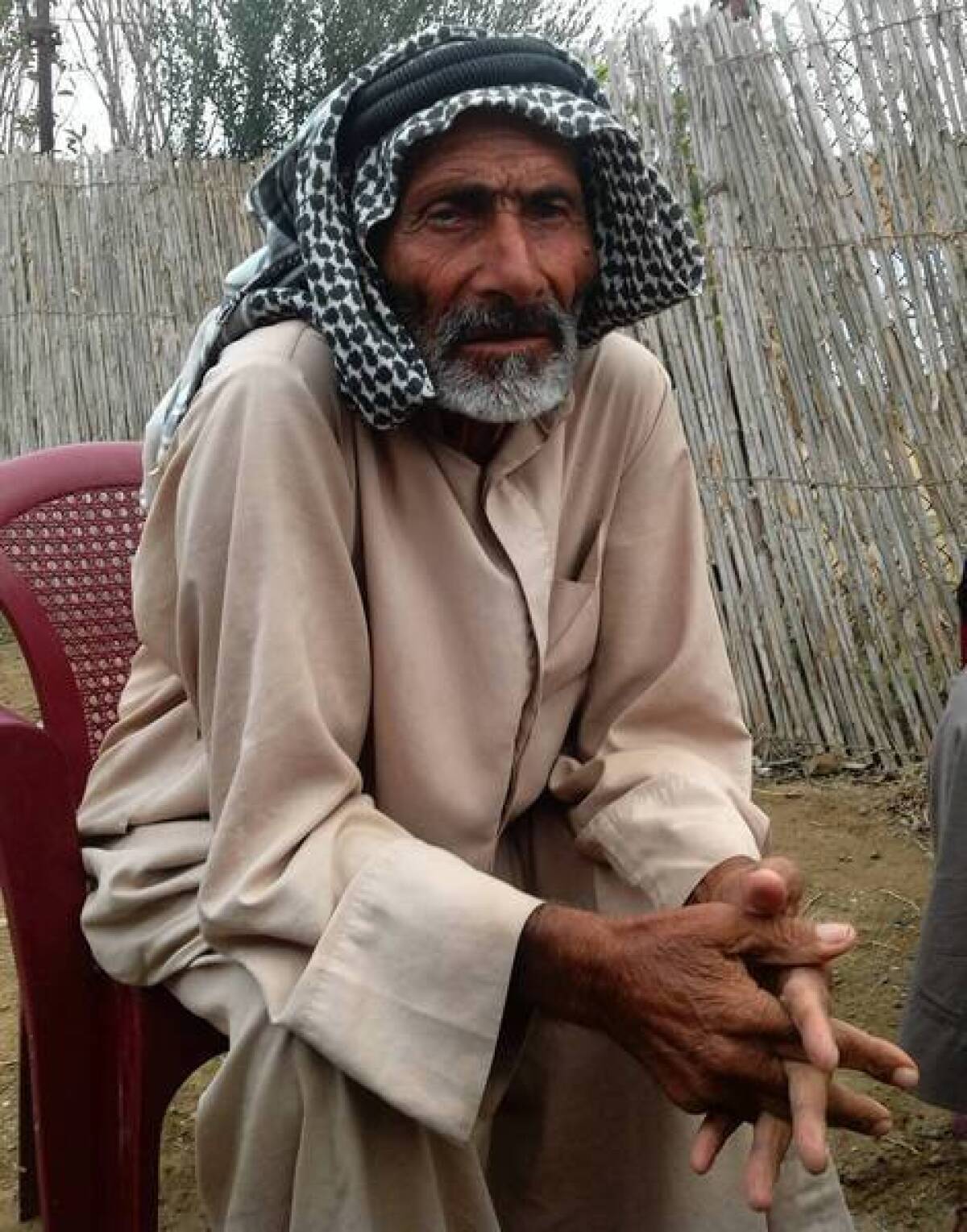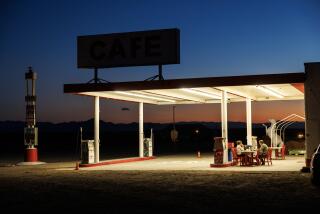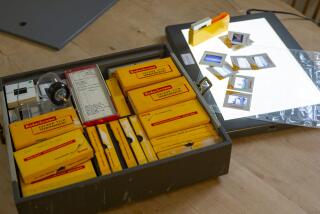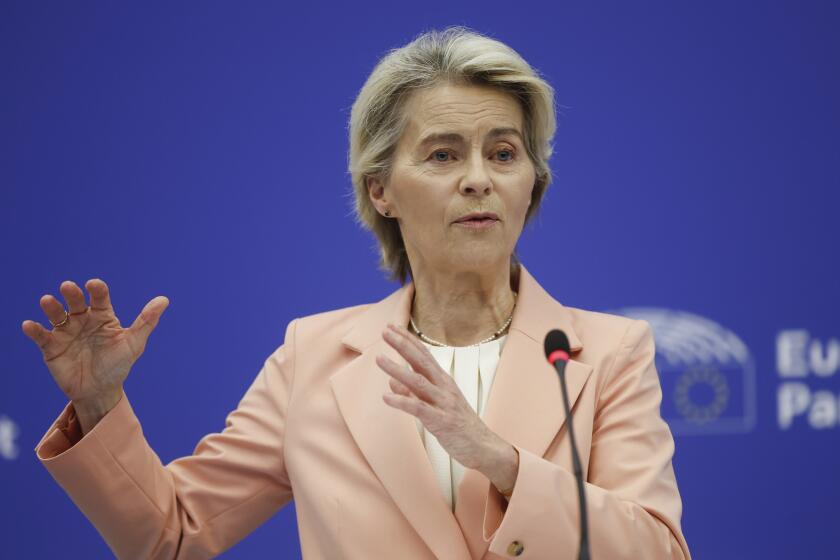At age 115 (some say), an Iraqi man looks back

RAMADI, Iraq — Ali Ouda doesn’t leave his birthplace anymore. His knees wobble and cataracts fog his brown eyes.
He can’t remember his age. Some say he must be 115 years old, but he doesn’t look a day over 90. No one really knows.
Ouda’s days repeat: He wakes up, prays in bed, waits for his sons to sit with him, and then strolls around the fields he has known since childhood, wearing his dishdasha and black and white headdress. He chats with neighbors.
His world consists of the immediate area around his farm in the small rural community of Jazeera, at the edge of Ramadi.
“I am killing time,” he said recently.
Like many elderly Iraqis in villages and cities throughout the country, Ouda is respected for his longevity. He worked the fields long before and during Saddam Hussein’s presidency from 1979 to 2003, continued through the years of war after the U.S.-led invasion and has kept on in his own way since the American withdrawal. Ouda and those like him in many ways represent the heart and soul of Iraq, living long, steady lives, though rarely seen or heard.
For Ouda, some history is blurry — whether he was alive during World War I, lived under British or Turkish military occupation; or was born under Iraq’s first king — but he remembers everything about his life in this village, about 70 miles west of Baghdad.
As a boy, Ouda worked to grow food, first with horse-drawn plows and later with tractors, harvesting watermelon, tomatoes and wheat. At sunrise, he would get up and eat seven dates and dried yogurt before heading out to work. Lunch was corn soup and a small piece of flatbread. He stayed in the field till dark.
Today, the old man fills his time at home with memories, daydreams and anecdotes he hears from neighbors.
The stories of bombings terrify him. He recently heard about two men left to die after a bombing in Ramadi. He worries that if he visited the city he might be sitting in a cafe when a suicide bomber struck.
He hasn’t left his farm in more than two years, and wishes the television showed only his beloved films about Bedouins, not the bloodshed.
“I am not afraid of dying. That’s not a problem. I am afraid of living. If they have to chop off my arm or leg, no one will be able to afford to take care of me,” he said. “I don’t want to be handicapped, so it’s just better I stay home.”
Ouda said that a few years ago he did want to go into Ramadi and was waiting for one of his sons to drive him. But he became impatient and decided to walk. A taxi followed him and asked how much he would pay for a ride. Ouda offered about a dollar and the driver refused, so Ouda carried on.
A while later, a second taxi pulled up and asked Ouda why he didn’t have a car.
“God gave me my own vehicle,” he said. “My legs are my ride.”
The driver smiled and asked: “Are you one of the old people who ate the dates and dried yogurt?”
“Yes,” Ouda said.
The driver grinned. “We prefer to go back to that time.”
After sharing the story, Ouda happily told a guest, “The taxi driver saw I was tough and in good health.”
Ouda said he was already an adult when his father demanded that he marry his cousin, named Hillala. At first he refused, but then he relented and fell in love. The family built a small hut of reeds and covered its tops with sheets for the honeymoon.
“My wife was beautiful. She was a hard worker and never argued. She baked bread and took care of the sheep, milked them and raised our children,” he said, his brown eyes twinkling.
The couple had three boys and three girls. They spent a life together.
Hillala, who was about 20 years younger than he, died of a sudden illness two years ago. He said life is not the same.
“To sleep with your wife after a hard day’s work makes you feel good and comfortable,” he said with a giggle. “When I think about my wife, tears fall from my eyes. I miss her.”
But Ouda also said he daydreams about a new romance with a young woman from America. “I love to make a woman satisfied,” he told his son and several neighbors, laughing and clapping his bony hands.
What might it be like to find a new wife and live away from Iraq’s troubles, perhaps in a place known for freedom?
“Age doesn’t matter,” he said. “Nobody will question where I am going or what I am doing.”
He imagines he would have no problem adapting, including shedding his traditional Iraqi wardrobe.
“I’ll dress casual. I’ll feel good when I get to America. They will take care of me.”
He said his new wife should have fair skin, black hair and brown eyes.
“I will be the luckiest man in the world if I get her,” he said with a sigh.
His son Khaled and several neighbors laughed. Ouda smiled, thinking of the possibilities.
More to Read
Sign up for Essential California
The most important California stories and recommendations in your inbox every morning.
You may occasionally receive promotional content from the Los Angeles Times.










